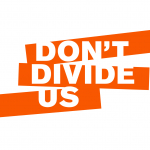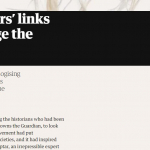A primary teacher’s experience of anti-racist training
In September, all the staff in my primary school in East London took part in training, titled ‘Working Towards an Anti-Racist Curriculum’. The training was run by Global Learning London, who explained that we were going to move from a non-racist school to an anti-racist school. They explained that this would be a tough and emotional journey for all of us where we would have to confront our prejudices and unconscious biases, but it could also bring up uncomfortable and difficult feelings for the BAME staff members They then explained that Tower Hamlets borough had organised an extra support group for these members of staff only.
I was feeling uncomfortable. I have taught in Tower Hamlets since 1991 with brilliant teachers from a wide range of backgrounds and races, all hard working, all focused on achieving the best for the pupils in our school, all working together as a team in sometimes very challenging circumstances. But this was the first time that I felt that I was a ‘white’ teacher and different from the Black and Asian teachers.
We watched videos of teenagers (we teach three- to 11-year-olds, mind) who explained that the existing curriculum in school did not reflect their community or only taught pro-British empire/ pro-colonialism history. One video showed one teenager performing a poem about how racist Britain still was and we were asked how it made us feel. There was an awkward silence but bravely, one member of staff, who is white, explained that actually she was confused. As someone who is an Eastender through and through, this video did not reflect the London she knew, and that most of the local communities got on and we’re all in it together, especially in the difficult times we now all faced.
I wished I had had the courage to speak up like her, but after this first session finished, I heard the head was apologising to other members of staff about this person’s opinions saying: ‘Sorry but she has had a certain amount of privilege.’
We were told we should read books about racism, including a book titled Why I’m No Longer Talking to White People About Race by Reni Eddo Lodge. An extract was read from the book, in which the author asks the reader to imagine a scenario where a black couple have such high hopes for their young boy as he starts his school journey, but what they don’t realise is that he will not be able to amount to much because of all the institutional racism he will face and there is nothing he or his parents can do about it.
I thought how bloody patronising – this did not reflect the school children I have taught at all. The black kids I have taught were not these passive vessels described in the book as devoid of any agency. The kids I have taught, like nearly all kids in London, have a positive attitude, an aspirational attitude.
This view of education that Reni is suggesting is also not one I recognise. The schools I have taught in have always strived for all children to reach their potential.
So, these are my thoughts about the anti-racist training.


